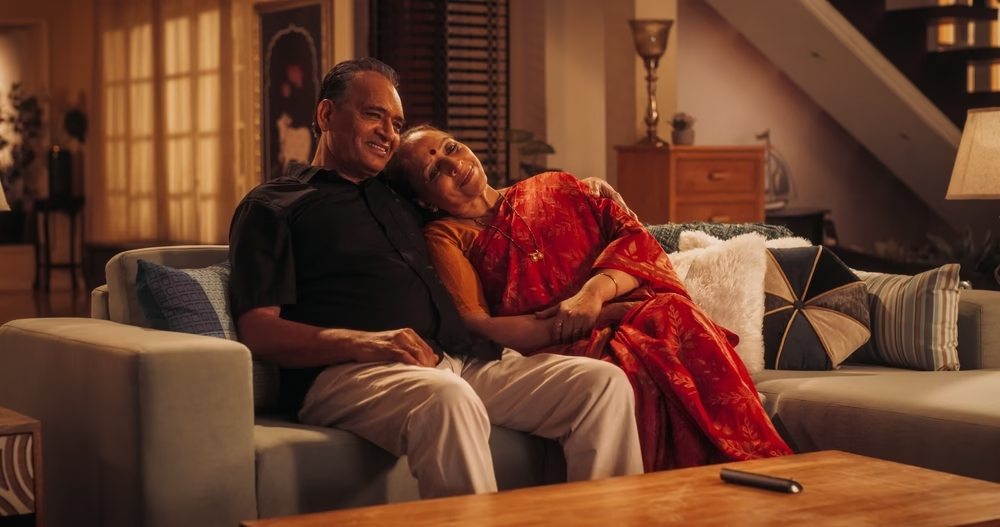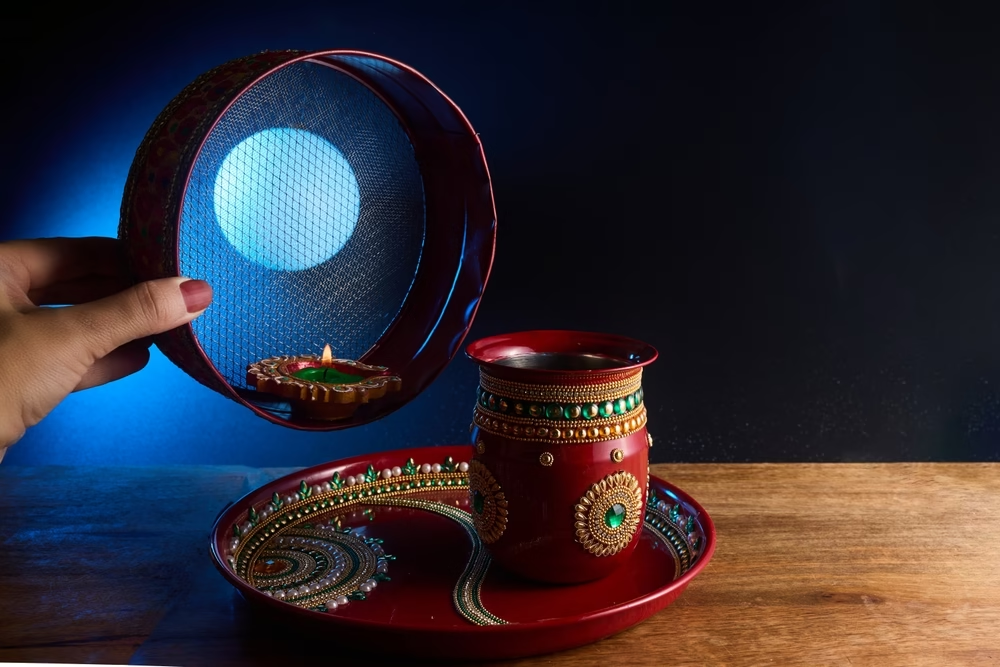Karwa Chauth is one of the most loved Indian festivals. Women keep a full-day fast, without food or water, to pray for the long life of their husbands. But many heart patients and their families often ask: “Is it safe for heart patients to fast on Karwa Chauth?”
The answer is not simple. For some people, fasting when planned correctly may be safe. For others, it may be risky. This blog will provide safety tips for heart patients during Karwa Chauth in a clear and easy-to-understand manner. This guide will help you or your loved one who might have a heart condition to celebrate the festival, putting health and safety first.
Table of Contents
ToggleStep-by-Step Safety Tips for Heart Patients During Karwa Chauth
Talk to your doctor first
If you’re considering a fast, consult your doctor to find out if it’s safe for you. Every heart patient’s condition is different. Some may be able to do these things, but for some, fasting could enhance the risk. A quick discussion with your doctor will provide you reassurance.
Be smart with sargi
What you eat before sunrise sets the tone for the whole day. Avoid heavy, oily fried parathas or fatty food that makes you thirsty through the evening. What you should actually have is something light and filling. It can provide you with steady energy that doesn’t place stress on your stomach or heart. To know what you can eat in your sargi, Book a call with our experts.
Drink plenty of water
Take at least 2–3 glasses of water very slowly before the fast commences. That’s what helps hydrate your body longer. Stay away from tea or coffee because they might make you urinate even more and lose water sooner.
Do not over-exercise
Karwa Chauth is not the day to stress your body. No heavy running or lots of exercise. Conserve your strength, take short naps if needed, and let your heart rest.
Check your vitals
If you have a BP machine or sugar monitor at home, read your results in the morning and at night. It will alert you early if something is going wrong.
Smart break at night
When it’s time to break your fast, don’t rush into a big meal. Start with a glass of water, then eat light food first like fruits or soup. Give your stomach time before moving to a regular meal.
Stay calm
Stress can increase your blood pressure, and making it through a fast is harder if you’re stressed. Relax, keep away from arguments and have peace of mind. A quiet mind also helps the heart stay steady.
Why it Matters for Your Heart
Not eating or drinking for more than 12 hours is tough on everyone. It can make a healthy person feel hungry, weak, or headachy. But for someone with heart disease, the effect can be deadly.
When you have a heart problem, your body relies on Medicines and an uninterrupted food stream. Fasting can disturb this balance. That is why, for a festivity like Karwa Chauth, safety for cardiac patients needs to be looked into.
Role of Fasting and Diet
- Fasting lowers blood sugar, which may trigger dizziness or fainting.
- Lack of water may cause dehydration, making the heart work harder.
- Skipping meals can disturb the timing of medicines.
Effect on Blood Pressure and Sugar
- Blood pressure can jump when the body is stressed, like in heart patients with high blood pressure.
- Blood sugar fluctuations can trigger chest pain or palpitations.
- Dehydration can thicken blood, increasing clot risk.
According to the World Heart Federation, cardiovascular diseases are the leading cause of death in India, responsible for nearly 2.87 million deaths in 2021 alone. India has one of the highest burdens globally, with an age-standardized CVD incidence rate of 905 per 100,000 people and CVD accounting for over a quarter of adult deaths.
Karwa Chauth Dos & Don’ts for Heart Patients
Do’s
- Include fruits, whole grains, millets, and milk in your sargi.
- Drink 2-3 glasses of water before the sun rises.
- Use only doctor-prescribed drugs, even when fasting.
- Afterwards, break the fast with light food like soup or fruits.
- Keep a blood pressure and sugar monitor ready to use.
Don’ts
- Don’t skip your medications without guidance.
- Do not eat oily or fried food after breaking the fast.
- Do not have too much tea or coffee in sargi, as it dehydrates.
- Do not neglect warning signs like chest pain, breathlessness, or dizziness.
Scientific Evidence & Studies
Fasting is an age-old practice, but science shows that it must be handled carefully for people with medical conditions.
A 2025 study published in Diabetes and Metabolic Syndrome: Clinical Research and Reviews analyzed data from over 19,000 adults. It found that participants eating within an 8-hour window had a 135% higher risk of cardiovascular mortality compared to those eating over 12–14 hours. The study and accompanying editorials by Indian cardiology and endocrinology experts emphasize caution and medical supervision for heart patients considering fasting.
Saaol Heartcare’s Dr Bimal Chhajer says, “Heart patients can keep Karwa Chauth fasts but only after consulting a doctor and preparing with the right sargi.”
Read more from the SAAOL heartcare.
Karwa Chauth Fasting with Hypertension & Heart Condition
Karwa Chauth fasting can be life-threatening without a doctor’s advice for those with high BP or angina.
Some precautions of fasting with hypertension:
- Do not skip BP medicines.
- Avoid salty food before fasting.
- Stay away from stress or arguments.
- Monitor BP pre- and post-fasting.
Patients with heart blockage or recent surgery:
- Fasting is not recommended without medical approval.
- If you fast, keep a plan ready to break early if you feel unwell.
Extra Care for Older Heart Patients

On Karwa Chauth, special care should be taken for Heart Patients. The ability to handle stress generally declines with age.
- Keep them indoors and rested.
- Make sure they consume sufficient water before sunrise.
- They should eat something easily digestible.
- Family members should look for warning signs like chest pain, shortness of breath or fatigue.
Author’s Note & Expert Opinions
Author’s Note:
As I wrote this blog, I thought of my own mother and grandmother. I saw their dedication to Karwa Chauth. But I also saw how elders with health conditions sometimes push themselves too much. This blog is my way of saying: celebrate, but don’t risk your health. Love is in the intention, not in suffering.
Expert Insights:
Dr. Vishal Sharma (COO, Senior Heart Specialist, SAAOL Heartcare): “Fasting should never come at the cost of health. Discuss with your doctor and plan smartly.”
Garima, Nutrition Head at SAAOL Heartcare: “Your sargi decides your day. Hydration, fruits, and protein are more important than oily or fried food.”
Conclusion
Karwa Chauth is all about love and being together. But safety tips for heart patients during Karwa Chauth fast are not just about devotion; it’s a matter of responsibility. With some sensible precautions, medical guidance, and good planning, you can be heart-healthy and safe. Remember: Your health is a gift to your loved ones.
Know more about heart care in SAAOL Heartcare.
FAQs
1: Is it safe for heart patients to keep a fast on Karwa Chauth?
It depends on your condition. Consult your doctor before fasting.
2: How Heart Patients Should Fast on Karwa Chauth
Have a balanced sargi, keep yourself hydrated, refrain from stressing yourself up, don’t skip on medicines, and break your fast with light food.
3: What are Karwa Chauth dos & don’ts for heart patients?
Plan a nutrient-rich sargi, consult a doctor, keep vitals in check, and avoid fried food
4: What if I feel weak during fasting?
Break your fast immediately. Health comes before tradition.


